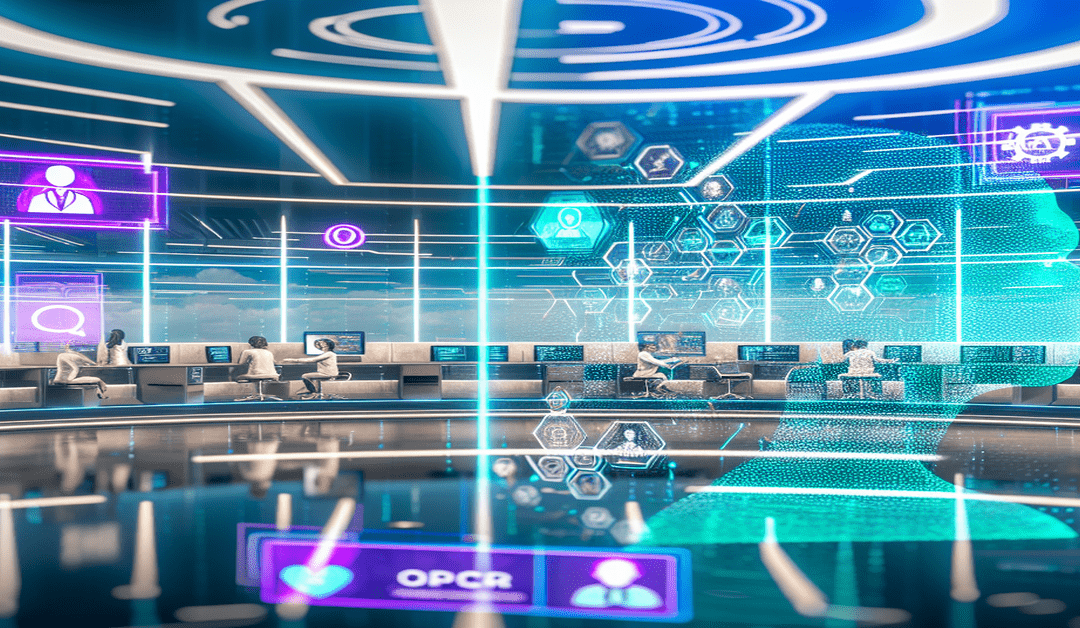The Dawn of Superagent AI: How OpenAI and Meta are Paving the Way
As we stand on the precipice of a new era in artificial intelligence, the anticipation is palpable. The world is about to witness a groundbreaking advancement that will forever change the landscape of AI and its applications across various industries. Leading the charge are two tech giants, OpenAI and Meta, who are on the cusp of creating AI models capable of performing at a Ph.D. level in multiple domains.
The Rise of Advanced AI Models
The concept of a “superagent” AI is no longer a distant dream but a rapidly approaching reality. These advanced AI models are designed to learn and adapt across a wide range of tasks and fields, much like a human expert. The implications of such a breakthrough are staggering, with the potential to revolutionize industries like healthcare, finance, and education.
Imagine a world where AI can assist doctors in diagnosing complex medical conditions, help financial analysts make data-driven decisions, and provide personalized education to students across the globe. The possibilities are endless, and the impact on society will be profound.
OpenAI and Meta: Pioneers of the AI Revolution
At the forefront of this AI revolution are OpenAI and Meta, two companies that have consistently pushed the boundaries of what’s possible with artificial intelligence. OpenAI’s GPT series, particularly the highly anticipated GPT-4, has already demonstrated remarkable capabilities in natural language processing and generation. Meanwhile, Meta’s LLaMA model has shown immense promise in its ability to understand and generate human-like responses.
As these companies continue to refine and expand their AI models, we inch closer to the realization of a superagent AI that can seamlessly navigate complex problems and provide expert-level insights across various domains. The collaboration and competition between OpenAI and Meta are driving innovation at an unprecedented pace, ensuring that we’ll see these groundbreaking advancements sooner rather than later.
Navigating the Ethical Landscape
While the prospect of Ph.D.-level AI is undeniably exciting, it also raises important ethical questions that must be addressed. As AI becomes more sophisticated and capable, concerns about job displacement, bias, and the potential for misuse come to the forefront.
It’s crucial that the development of these advanced AI models is accompanied by robust regulatory frameworks and ethical guidelines. We must ensure that the benefits of AI are distributed fairly and that the technology is used responsibly. OpenAI and Meta have both expressed their commitment to ethical AI development, but it will take a collective effort from researchers, policymakers, and society as a whole to navigate this complex landscape.
The Future is Now
The timeline for this AI breakthrough is no longer a matter of decades but rather a question of years. Some experts predict that we could see a superagent AI emerge within the next few years, a testament to the rapid progress being made in the field.
As we stand on the brink of this transformative moment, it’s important to recognize the incredible potential that lies ahead. The advent of Ph.D.-level AI will not only change the way we work and live but also challenge our understanding of intelligence and what it means to be human.
It’s an exciting time to be alive, and we have front-row seats to witness the birth of a new era in artificial intelligence. As OpenAI and Meta continue to push the boundaries of what’s possible, we can only imagine the incredible advancements that await us in the near future.
#AI #SuperagentAI #OpenAI #Meta
-> Original article and inspiration provided by Mike Allen and Jim VandeHei
-> Connect with one of our AI Strategists today at Opahl Technologies

